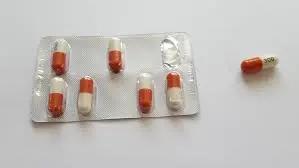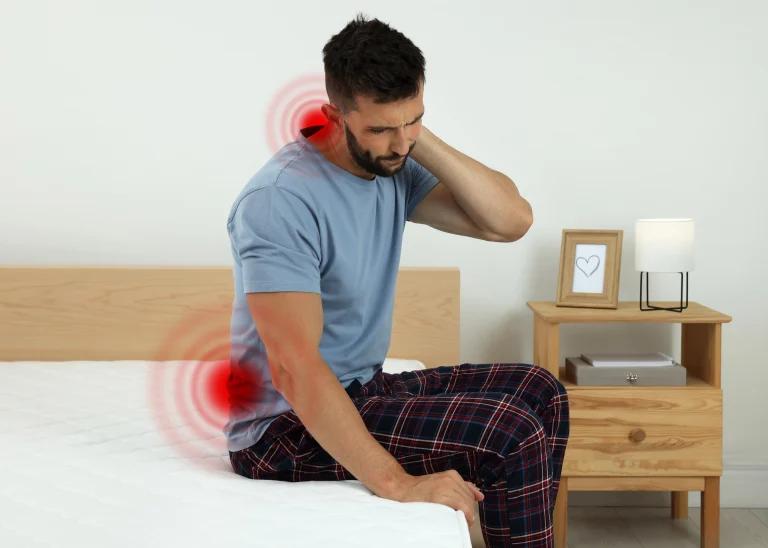In pain management, understanding what medications can safely work together is paramount for both efficacy and safety. Pregabalin, a prescription drug widely used for its analgesic and anticonvulsant properties, is used by many patients managing chronic pain conditions. However, the question of what not to take with pregabalin is crucial, as certain combinations can lead to adverse interactions, affecting the drug’s effectiveness and potentially leading to unwanted side effects. Here, we will explore what pregabalin is, its common uses, and potential side effects, while providing an in-depth look at its interactions with other medications.
What is pregabalin?
Pregabalin is an anticonvulsant known by the brand name Lyrica. It is used as an analgesic and for the prevention of seizures. It is particularly effective for the management of neuropathic pain and is more potent than a similar drug, gabapentin.
Mechanism of action
Pregabalin works by binding to nerve receptors in the brain and spinal cord, resulting in a decrease in both pain and anxiety.
Forms and administration
Pregabalin is available in several forms, including capsules, an oral solution, and extended-release tablets. It is typically administered two to three times a day when prescribed in capsule or oral solution form, and once daily in the evening when prescribed as an extended-release tablet. Patients are advised to follow their prescription labels carefully and maintain consistent dosing schedules.
Clinical uses
The drug is utilized to treat a range of conditions including:
- Neuropathic pain associated with diabetic peripheral neuropathy or postherpetic neuralgia
- Fibromyalgia, a chronic condition characterized by pain, stiffness, and tenderness of the muscles
- Partial onset seizures, where it is often combined with other anticonvulsants
Common uses of pregabalin
Epilepsy
Pregabalin is widely recognized for its effectiveness as an antiepileptic drug (AED), particularly for the management of refractory partial seizures.
Nerve pain
Pregabalin is licensed for the treatment of neuropathic pain in adults e.g. pain caused by nerve damage from diabetes (diabetic neuropathy), shingles or spinal cord injury.
Anxiety
In addition to its uses in epilepsy and nerve pain, pregabalin is effective in treating anxiety disorders, including generalized anxiety disorder (GAD) and social anxiety disorder.
Common side effects
Pregabalin may cause some side effects that generally do not require medical attention. These side effects often reduce as the body adjusts to the medication. Common side effects include:
- Blurred vision
- Burning, tingling, numbness or pain in the hands, arms, feet, or legs
- Change in walking and balance
- Confusion
- Constipation
- Difficulty speaking
- Double vision
- Dry mouth
- Weight gain
Serious side effects
Some side effects of pregabalin may need immediate medical attention. Contact your healthcare provider if you experience any of the following:
- Chest pain
- Cold sweats
- Cool, pale skin
- Trouble breathing
- Bloating or swelling of the face, arms, hands, lower legs, or feet
- Unusual tiredness or weakness
Patients experiencing persistent or worsening symptoms should consult a healthcare professional for guidance on how to manage these side effects.
Interactions with other medications
Pregabalin requires careful consideration when combined with other medications due to potential interactions. These interactions can vary in severity and may necessitate adjustments in treatment plans to ensure patient safety and medication effectiveness.
Common interactions
- Sedatives and opioids: Medications that induce drowsiness, such as opioids and certain sedatives, can increase the sedative effects of pregabalin. This includes an increased risk of dizziness and tiredness. Patients may need to be closely monitored for signs of excessive sedation and respiratory distress
- Antihistamines: Some antihistamines, particularly those used for their sedative properties like doxylamine and diphenhydramine, can interact with pregabalin, leading to increased sedation. This necessitates caution and in some cases, dosage adjustments or alternative medications
- Alcohol: Alcohol consumption can increase the drowsiness caused by pregabalin, increasing the risk of severe sedation and breathing difficulties. It is advisable to avoid alcohol while taking pregabalin, or to discuss potential risks with a healthcare provider
- Muscle relaxants and antipsychotics: Medications such as cyclobenzaprine (Amrix) and antipsychotics like olanzapine (Zyprexa) can cause drowsiness, which may be intensified when taken with pregabalin. Monitoring for excessive sleepiness and respiratory issues is critical
Medicines to avoid
Opioids
Morphine and oxycodone cause an increased risk of sedation, respiratory depression, and overdose.
Benzodiazepines (BZDs)
Alprazolam and lorazepam cause excessive sedation and an increased risk of respiratory distress.
Sedatives
Zolpidem and eszopiclone increase sedative effects, and the potential for significant respiratory depression.
Certain antihistamines
Diphenhydramine and doxylamine cause increased drowsiness and a risk of excessive sedation.
Muscle relaxants
Cyclobenzaprine and baclofen can cause heightened drowsiness and an increased risk of sedation.
Antipsychotics
Olanzapine and quetiapine can cause excessive sleepiness and the potential for severe sedation.
Painkillers to avoid
This section highlights two critical categories: Opioids and painkillers with sedatives, which when combined with pregabalin, can lead to potentially dangerous side effects.
Opioids
Opioids, known for their pain-relieving properties, work by altering the brain’s response to pain. Examples include hydrocodone/acetaminophen and oxycodone. However, like pregabalin, opioids are controlled substances due to their potential for abuse and dependency. Combining opioids with pregabalin can exacerbate effects such as tiredness, dizziness, and coordination problems. More seriously, this combination may increase the likelihood of developing breathing difficulties, particularly in the elderly or those with underlying respiratory issues. This risk is significant enough that the FDA issued a warning about this interaction in 2019. In cases where both medications are deemed necessary, healthcare providers might lower doses and closely monitor for symptoms, such as extreme sleepiness, confusion, and difficulty breathing. Immediate emergency help should be sought if these symptoms occur.
Painkillers with sedatives
Sedatives encompass a broad group of medications used to treat conditions like sleep problems and seizures. This category includes sleep medications such as zolpidem, barbiturates like phenobarbital, and benzodiazepines, such as lorazepam, diazepam, and alprazolam. Like opioids, combining these sedative medications with pregabalin can lead to excessive sedation and an increased risk of respiratory problems. It’s generally advised to avoid taking benzodiazepines with pregabalin. If a healthcare provider determines that both are necessary, they may opt for lower doses and recommend close monitoring for signs of deep sedation or slowed breathing.
Given the extensive list of medications that may interact with pregabalin, including over 283 drugs, with 28 major interactions, it is crucial to inform healthcare providers about all medications being taken. This careful approach ensures the avoidance of adverse effects while managing pain effectively with pregabalin. Specifically, combinations with opioids and benzodiazepines are of particular concern due to the serious risks posed, including the potential for life-threatening respiratory depression. The FDA has issued warnings regarding these combinations, emphasizing the need for careful monitoring and possible emergency intervention if interactions occur.
Safe painkillers to take with pregabalin
This section delves into the compatibility of pregabalin with two common over-the-counter (OTC) pain relief medications: Acetaminophen/paracetamol and non-steroidal anti-inflammatory drugs (NSAIDs).
Acetaminophen/paracetamol
Acetaminophen, widely recognized for its fever-reducing and pain-relieving properties, has been found to have no interactions with pregabalin. This makes it a viable option for patients seeking additional pain relief while on pregabalin therapy. However, it’s crucial to remember that the absence of known interactions does not guarantee safety. Patients are advised to consult their healthcare provider before combining these medications.
Non-steroidal anti-inflammatory drugs (NSAIDs)
NSAIDs, including ibuprofen, are another category of pain relievers that have shown no known interactions with pregabalin. These drugs are used to treat a wide range of conditions from back pain to fever and osteoarthritis. Like acetaminophen/paracetamol, the use of NSAIDs alongside pregabalin should be discussed with a healthcare provider to ensure safety.
In summary, while acetaminophen and NSAIDs like ibuprofen do not exhibit known interactions with pregabalin, patients should remain vigilant and consult their healthcare provider before combining these medications.
Conclusion
We’ve looked into what medications can be safely combined with pregabalin, such as acetaminophen and NSAIDs, while highlighting those that pose risks, including opioids and sedatives. Consideration of drug interactions, alongside the advice to engage in regular reviews with healthcare professionals, provides a good basis for the management of chronic pain conditions more safely and effectively.
Sources
Medical Disclaimer
NowPatient has taken all reasonable steps to ensure that all material is factually accurate, complete, and current. However, the knowledge and experience of a qualified healthcare professional should always be sought after instead of using the information on this page. Before taking any drug, you should always speak to your doctor or another qualified healthcare provider.
The information provided here about medications is subject to change and is not meant to include all uses, precautions, warnings, directions, drug interactions, allergic reactions, or negative effects. The absence of warnings or other information for a particular medication does not imply that the medication or medication combination is appropriate for all patients or for all possible purposes.








